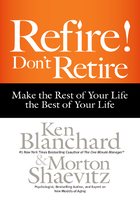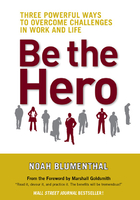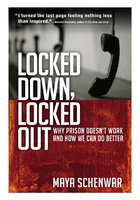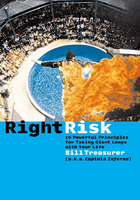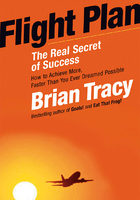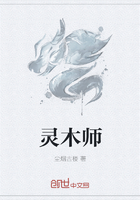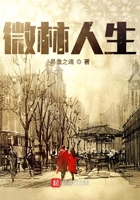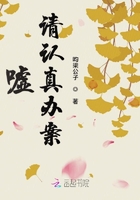THE human body is a machine, or system of "works," more delicately constructed than a watch, more complicated and wonderful than the most powerful steam-engine.
The "works" of the body are organs and tissues-as the heart, thestomach, the lungs, the arteries, the muscles, the nerves, the skin- each of which has a distinct function or duty to perform. When allthe parts of the bodily machine are in good working order, the body is in a state of HEALTH (Old Eng. hael , whole).
A state of health is necessary, not only to the comfort and activityof the body, but also to the comfort and activity of the mind. It is therefore of the greatest importance that we should take every means in our power to promote bodily health.
The chief means within our power of keeping the body in a healthy state are attention to food , cleanliness , clothing , ventilation , (air and light,) exercise , and rest .
FOOD
Food keeps the body in health by making it warm, and by forming the material of which every part of the bodily frame is made.
If you read the lesson called "Living Stoves," you will see that our food is really the fuel of the bodily machine, just as coal is of the steam-engine;and that its end is combustion, and the production of animal heat. Food, therefore, is necessary to make warmth.
But, in the act of burning, the body wastes, by throwing off its worn-out particles. So does the stove of an engine; but there is this great difference between them-that while the engine-stove must be repaired or renewed by man, the body is self-repairing. It is replacing the worn-out tissues as fast as they are consumed. The blood is simply bone and muscle and brain in a fluid state, and each draws from it the substance required to renew itself. Food is therefore necessary to form the body.
Fool must be nourishing; that is, it must be blood-making. Ifthe body does not get a sufficient amount of blood-making food, it cannot last. A furnace fire would not last long if you fed it with nothing but bricks or iron.
Mixed food is best. The blood consists of different element. Some of these elements are more abundant in vegetable, others in animal food. Of ordinary animal food, beef and mutton are the most nourishing, and are as easily digested as any other. In both respects, old flesh is preferable to young-beef to veal, and mutton to lamb.
Bread and porridge, as well as rice and barley, are vegetable food. They are generally classed with farinaceous or starchy foods, which are very important, as they supply the principal elements which are burned within the animal system. Stale bread digests more easily than new, and brown bread is more wholesome than white.
Whilst food is being cooked, it is often deprived of its saline and mineral elements, which are as necessary to animal life as its other constituents. These elements should be supplied in the form of uncooked food, as milk, ripe fruits, such vegetables as can be eaten raw, fresh water, and common salt.
Food should be thoroughly chewed before being swallowed. This makes it digest more easily, and lightens the work of the stomach. The peculiar uneasiness in the stomach known as indigestion is frequently caused by the food having been bolted when imperfectly chewed. Even soft food, which does not require much chewing- as bread, rice, and con-flour-should be retained in the mouth for some time, to allow the saliva to mix with it, whereby its starchy matter is turned into sugar, and the work of the stomach is greatly lightened.
Three meals a day are usually enough; but more important than the number of meals are the intervals between them. The process of digestion requires rest for the whole body; but it especially requires that the organs of digestion should not be disturbed during the operation. The food is changed while in the stomach into a new substance. If when it is half changed you mix fresh food with it, confusion will necessarily arise. It is as if you were to mix fresh rags with the soft pulp which is ready to be made into paper. The time which food requires for its proper digestion varies, with the nature of the food, from two to four hours. No food of any kind shouldregular meals should be four hours at least. Supper should be taken two hours before going to sleep, that the stomach, as well as the other parts of the body, may have rest while we are asleep. At the same time, we should not fast too long; and we should observe regularity in the times at which we take our meals.
QUESTIONS
What is the human body? What are its "works"? Name some of them. When is the body in a state of health? Why is this state so important? By what means may it be secured? How does food keep the body in health? What does the consumption of food produce? With what other machine may the body in this respect be compared? What great difference is there between them? What food is best? Of what elements is food deprived by cooking? How may these be supplied? How should food be prepared for the stomach? What is the use of the saliva? How many meals a day are enough? What is more important than the number of meals? Why should the body rest between meals? Why is it bad to eat between meals? Why should we sup two hours before going to sleep?
CLEANLINESS
Cleanliness-that is, keeping the whole skin of the body pure and fresh-is a great source of health. The skin, like the internal organs of the body, has work to do, and it cannot do its work unless it is kept clean.
The skin is one means of getting rid of impure, refuse matter from the blood. For this purpose it is supplied with two or three millions of small tubes, called pores, through which it sweats out the superfluous moisture. These pores also regulate the temperature of the body. When the body gets over-heated, from violent exercise or exposure to fire, it is flooded with perspiration from these pores, and so is cooled down.
The skin, besides, is kept soft and smooth by a kind of oily matter secreted in small cells over its surface.
Now, if the pores and the oil-cells become blocked up with dirt, they cannot perform their functions. In that case, either the skinitself will become diseased, or the blood will be injured by being forced to retain its impurities; or, it may be, some other organ (as the kidneys) will have to do the work of the skin besides its own, and serious disease may follow.
Washing the skin is therefore indispensable to health. A complete bath should be taken, or at least the whole body should be well sponged, every day. The face and hands, which are most exposed, should be washed three or four times a day.
Sea-bathing is the healthiest kind of washing, as it combines fresh air and vigorous exercise with its other benefits. It is a safe rule never to bathe till at least two hours after a meal. It is unsafe to go into the water when cold, or to remain in it after you begin to feel chilled.
QUESTIONS
What is the chief function or work of the skin? How do the pores regulate the temperature of the body? How is the skin kept soft? What will be the consequence if the skin is not kept clean? What is therefore indispensable to health? What is the healthiest kind of washing? What rules are to be observed in connection with sea-bathing?
CLOTHING
That the skin may properly discharge its functions, it must not only be kept clean; it must also be protected from cold as well as from heat by clothing. Clothes keep us warm by keeping in our own heat, rather than by communicating heat to us. The less clothing the body wears, the more quickly does it consume its fuel (food), and the more food does it require. Warm clothing is therefore an economizer of food. It is necessary to maintain the natural temperature of the body; for when that is reduced, the blood is driven inwards to the internal organs, which are thereby oppressed, and the health is injured. This is why we feel it necessary to put on warmer clothing at the setting in of the cold season of the year.
That is the warmest clothing which is the worst conductor of heat; hence down is warmer than wool, cotton than linen, fine cloththan coarse, light-coloured fabric than dark.
Loose garments are
warmer than tight-fitting ones, because the air which the formerenclose is a bad conductor of heat.
We require clothing in summer, and in hot climates, to protect the skin from the heat of the sun. Those clothes are the best for this purpose which reflect or throw off external heat most. Thus, white or light-coloured clothing is worn in summer, because it is a bad absorbent of heat. Under-clothing should be put off each night, and entirely changed once or twice a week.
Clothing should be made so as on the one hand not to restrain or cramp the action of any of the organs of the body, and so as not to expose them unduly to cold or moisture on the other.
Tightening the waist, whether by wearing stays or corsets, or by any other means, prevents full breathing, compresses the liver, and drives the blood to the extremities, besides giving the body an unnatural and ungraceful form.
Tight neck-ties and collars worn by men are equally injurious. They check the flow of blood to the head, and may bring on apoplexy.
Head-dresses should be light and airy, and should not press upon the veins of the head so as to obstruct the circulation. Baldness, so prevalent among men, is said to result in many cases from wearing heavy and tight-fitting hats. The fashion once prevailing amongst women of padding the natural hair, and overloading the head with ornaments, was injurious in many ways.
The custom of exposing the legs of children, especially of infants, to cold, is a fruitful source of disease and death. Exposing the chest and shoulders of older persons in cold weather and in cold climates is equally dangerous.
QUESTIONS
What is the purpose served by clothing? How do clothes keep us warm? How is warm clothing an economizer of food? What is the effect of allowing the natural temperature of the body to be reduced? Whichis the warmest clothing? Give examples. Why are loose clothes warmer than tight-fitting ones? Why is clothing required in hot weather? What clothes are best for this purpose? What should be attended to in the making of clothes? What are the effects of tightening the waist? Why are tight neck-ties injurious? What often results from wearing heavy and tight-fitting hats? What is a frequent source of discase in the case of children?
VENTILATION
Fresh air is as necessary to life and health as wholesome food. In fact air is food, inasmuch as our material food would be useless without air. It is the oxygen in the air we breathe, uniting with the carbon in the blood, that fits our food for wanning and nourishing the body. Every time we draw air in, our lungs deprive the air of a certain amount of oxygen. Every time we send breath out, our lungs supply the place of that oxygen by a corresponding amount of carbonic acid. Now, carbonic acid acts as a poison; and breath is therefore simply more or less poisoned air. If instead of inhaling fresh air we inhale breath, we not only deprive the blood of the oxygen which is necessary to enable it to warm and support the body, but we positively poison the blood; and if we continue this process, sooner or later disease and death will ensue.
Yet nothing is more common than for crowds of people to remain together, in churches and other public places, for hours after the air has been polluted by the breathing of the assembled people. The consequence is that many people faint from the effects of the heated and poisoned air; and if they were to be forcibly confined there for a few hours longer, many would certainly die.
The injury which is thus done suddenly and evidently, is done gradually, but not less surely, to people who spend their days in hot, crowded workshops, and their nights in small, close dwellings. Physicians tell us that such diseases as consumption and scrofula are due far more to poisoned air, breathed in our houses and factories, than to a cold or changeable climate.
All places in which people assemble in large numbers-as schools, workshops, churches, lecture-halls, and theatres-should be wellventilated; that is, should be supplied with the means of carrying off the breathed air, and of letting in a copious supply of fresh air. It is imperfect ventilation, or the total want of it, that so often makes people sleepy in church, and children listless in school.
Ventilation is no less necessary in small rooms occupied by a few persons. There also the air will, in course of time, become polluted, unless fresh supplies of oxygen are constantly being admitted. One man may be confined in a room so small and close, that in a short time he may be poisoned by his own breath!
Perhaps more injury is done from want of ventilation in bed- rooms than in any other places. They are kept closed for so many hours at a time, and people think it necessary to make them so completely airtight, that the occupants are generally dependent for the whole night upon the air that fills the room when they enter and close it. Long before morning, the sleepers are breathing their own or each other"s breath over and over again. No wonder that crowded sleeping-rooms have so close and offensive a smell in the morning! Let any one of their occupants go into the fresh air for five minutes, and then return to the room in which he has spent the night, and he will in many cases be shocked if not stifled by the air on which he has been living for hours!
The air may be contaminated by other means besides the carbonic acid emitted from the lungs. The stone-cutter may inhale minute particles of stone; the iron-grinder may inhale metallic particles; the cotton-spinner, particles of cotton; and these settling on the lungs, often produce disease and death.
But the poisonous particles given off by putrefying animal and vegetable matters cause the most dangerous pollution of the air we breathe. They often produce the most fatal and destructive diseases; and such matters should never be allowed to accumulate near dwelling-houses. If they cannot be carried off by drainage, (which is the best remedy,) they should be continually disinfected with carbolic acid, or chloride of lime. There has hardly ever been an outbreak of typhoid fever in any locality which could not be traced to the diffusion of this kind of poison in the air; so true is this, that the fever referred to is now popularly called drain-fever.
The air is also frequently the medium of carrying disease- poison from a sick person to those who are well. It is thus that small-pox, scarlet fever, and other "catching diseases," often spreadin a community. It is the duty of those who have charge of the patients in such cases to take every means to prevent the spread of the poison from the sick persons to those who are well. "It is," says Dr. Lankester, "a common practice, much to be reprehended, to send children to school from families where small-pox, scarlet fever, measles, and hooping cough are prevailing; thus spreading the poison amongst those who have not been previously attacked."Houses should be built so as to admit plenty of light as well as of fresh air. The former is not less necessary than the latter to a healthy condition of body. Just as plants, when deprived of light, become white in their stalks and leaves, so man becomes pale and unhealthy when he lives under ground. Light acts as a stimulus to the nervous system, quickens the mind, and promotes the activity of the whole body. It helps, therefore, to keep off disease; and it is a fact that consumption is often the result of living in rooms from which the light of the sun is excluded.
QUESTIONS
Why may air be considered food? What happens every time we draw in air? What do we send out to take the place of the oxygen? What is breath? What poisons it? What is the effect of inhaling breath? Where is this done very often? Where is the same injury done by degrees? What diseases result from that? How is this to be prevented? What effects of bad ventilation are often seen? Where is most injury done from want of ventilation? Why is this? What takes place long before morning? In what other ways may the air be contaminated? What causes the most dangerous pollution of the air we breathe? How should decaying animal and vegetable matter be carried off? What diseases result from it? In what way does the air often spread disease? What should those who have the charge of patients do? What practice, in this connection, does Dr. Lankester strongly condemn? What, besides air, should be admitted into our houses? Why? What is the effect of absence of light upon plants? And upon man? How does light act upon the body? What does it help to keep off? What disease in particular?
EXERCISE AND REST
The muscles grow and gain strength by being used. Exercise is therefore necessar y to their healthy condition; and not to their healthy condition only, but to that of all the organs of the body. Muscular exercise accelerates the circulation of the blood; increases the healthy action of the heart, the lungs, and the skin; invigorates the nerves; stimulates the appetite; improves the powers of digestion, and carries healthful energy wherever the blood penetrates.
Care should be taken that the exercise we practise calls into play not one set only, but the whole of the muscles. Swimming is on this account the most healthful of all exercises. This cannot always be indulged in; but no one need be at a loss for invigorating exercises. Boys can run and leap, if they cannot play cricket or foot-ball; men can walk, if they cannot row or ride on horseback.
Systematic exercises, as gymnastics, are very useful; but boys are apt to attempt feats that are dangerous, and to over-tax their energies. Young people should therefore always be superintended, while engaging in them, by an experienced person who can estimate their strength. Competition in games is most injurious, as it almost inevitably taxes the strength beyond the powers of the system, and too often causes permanent injury to the health. It is a good rule that one should never engage in any game to the extent of producing painful or continued exhaustion.
No exercise is more interesting, or more useful in quickening both mind and body, than military drill. It would be an excellent thing, both for master and scholars, if, two or three times a week, half an hour were taken from books and given to drill in the open air, under the master"s leadership.
The muscles require rest as well as exercise. In this they differ from the heart and the lungs. These are always in motion, even when we are asleep; but the muscles, and the nervous system which governs the muscles, cannot work unless they have periodical seasons of total rest, during which all their functions are suspended. This rest we call sleep. We may rest the muscles to some extent while we are awake; but so long as we are awake, the brain and the nervous system, of which the brain is the seat, are at work.
These latter cannot rest unless we are thrown into the state of unconsciousness called sleep.
A man usually requires to sleep eight hours out of the twenty- four. Persons whose employment does not involve much anxiety or thinking might thrive with less; but they generally take more. On the other hand, those whose brains are most active during the day, and who therefore require most rest, often obtain or allow themselves least sleep at night; but such persons are never long-lived. A young person, while growing, needs more sleep than a man; and an infant spends half its time in sleep; -which one poet calls "nature"s soft nurse;" and another, "tired nature"s sweet restorer, balmy sleep."Too much sleep makes us dull, as too little exercise makes us lazy, converting our muscle into fat. Too little sleep, however, is much more injurious. A man who is forcibly kept awake will erelong become insane or will die.
QUESTIONS
Why does the body require exercise? What is its effect on the blood and the organs of the body? What is to be aimed at in the exercise we take? What exercise is, for this reason, the most healthful? What other exercises are recommended for boys? What for men? How may gymnastics be abused? What precaution should be taken against this? Why is competition in games injurious? What exercise is recommended for masters and scholars? Wherein do the muscles and the brain differ from the heart and the lungs? What is the total rest of the former called? How much sleep does a man usually require? What persons require most rest? What do young persons need? What have poets called sleep? What is the effect of too much sleep? and of too little?

